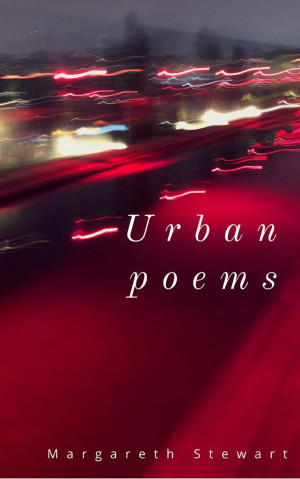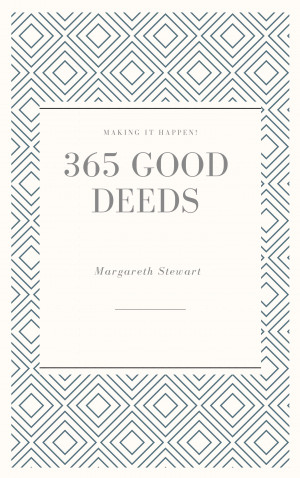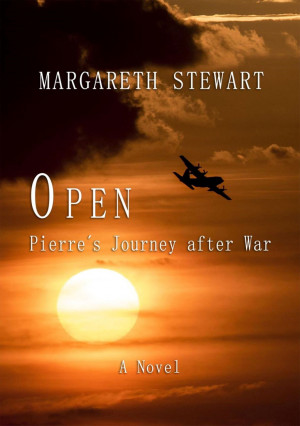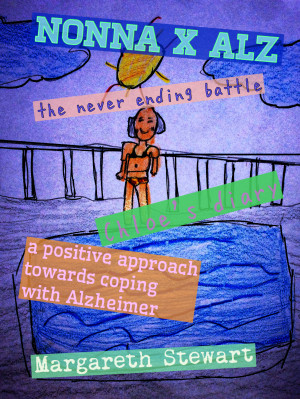Interview with Margareth Stewart
Published 2017-10-01.
When you're not writing, how do you spend your time?
Working, teaching, raising my three kids, reading, jogging or cycling, going to "Umbanda", very very active, try never to spare my time/
How do you discover the ebooks you read?
Basically either paper or ebook through search and instintic, I never ever read the bestsellers, I read the outsiders, all the ones who think differently and I guess these are the ones who play a major influence in my style, from Lorca, to Tchekov, from Galeano to Joyce.
Do you remember the first story you ever wrote?
Oh, I guess I was just a kid, I´ve always loved writing, anything, from diaries, to short stories featuring magazines, small presses, newspaper and so on, I do remember one that was published in a local newspaper from the city of my grandparents. In that article, I praised a kind of place which was very common in the past called "Armazém" where they used to sell all kinds of goods, and people would go there for anything at all. It also worked as a meeting point, the sellers - usually the owners - knew each costumer by heart and their orders, too. They would just give you what you needed in a matter of seconds. I´m afraid those place do not exist anymore, it´s a pity!
What is your writing process?
Oh, that´s a hard one. For the novels, I need a time off, so I usually work that out during writer´s residency periods. Then, I set a word limit count per day, and for the whole target - manuscript. Usually a first draft would have like 50.000 word-count. I sit and I write, the notes come after letting it flow, each day there are some issues with the story, then I go out for a short walk and get some solutions, and so on until I reach that target. I constantly say I´m the typist, the story is something that does not follow a thread or common already taken road, it is that solely and unique story that needs to be told because no one has done it. It is very solitary work, and at the same time original and creative. For articles and small texts, they can be done together with my every day stuff.
Do you remember the first story you ever read, and the impact it had on you?
There were few: The little Prince, The boy with the green finger, The princess and the pea, The orphan, and some very different stuff like the Last Tango in Paris, Steinbeck and Hesse. I do remember once being caught reading the last ones and my parents telling everyone they were not appropriate for me, lol, when they did it, I had already finished reading all of them!!!
How do you approach cover design?
That´s a good question. In the past I´ve hired people to do it, but at the end I always had to change and say look I need sth like this and that. Now with all the apps available we can learn and do ourselves. I´ve been fine with Canvas right now.
What are your five favorite books, and why?
Oh OMG, that´s a hard one. I guess the ones who did try and ventured new fields:
João Guimarães Rosa
John Steinbeck
James Joyce
Saramago
Toni Morrison
What book marketing techniques have been most effective for you?
Blogs, interviews, articles, facebook and twitter author´s page, talks, workshops, etc.
Describe your desk
Oh, busy, full of small notes, water and tea by my side day & night, glasses, eventually a candy, a black very comfortable armchair, PC facing north, plants around and some good smell /
What's the story behind your latest book?
It is Open/ Pierre´s journey after war, 2017.
OPEN - Pierre’s Journey after War takes a deep, inward look into the soul of a man whose wife and children are indiscriminately killed in the ceaseless aerial bombing of France during the Second World War. His remorse as a survivor spikes a desire for revenge equal to his heartache.
It is between the force fields of these two powerful emotions that author Margareth Stewart frames her story about the lasting psychological effects of war on innocent civilians. She builds a melodrama of believable proportion based on Pierre’s suffering from severe, personal tragedy, and magnifies its significance by contrasting his perpetual mourning with a modern couple’s inability to simply watch over each other in a more dependable world.
The cosmopolitan couple’s attempt to engage in a healthy vision of an opportune lifestyle during a short vacation offers striking contrast to Pierre’s long endurance of unanswerable images of a family lost in a war consigned to distant history. Burdened by the inability to protect his loved ones, he is driven to social rootlessness. Unable to live in the present or with his terrible past, he punishes himself through self-exile, surrendering to forces beyond control, determined to escape his nightmares by wandering from place to place like a runaway child. A true vagabond, he takes shelter and survives on goodwill shared with others, most of whom suffer comparable, daunting injustices.
Notably, the author avoids positioning Pierre as an aimless derelict. Instead, she produces a complex character, an educated and empathetic man, and enchants us with countless and insightful characterizations of Pierre’s involvement in the unforeseen, as in this description of a compassionate encounter with a warmhearted woman: “They were similar, in that they shared the capacity to grasp the whole situation in an instant. How else could he have known her situation? She had no other explanation for what had happened. It was the first time someone really saw her without even touching her, without even looking at her for long. She’d felt ashamed in his presence -- naked.”
Glimpses are caught of Pierre’s possible recovery yet the author holds back to demonstrate the lifetime needed to heal from severe, emotional trauma. Stewart, who has a doctoral degree in social psychology, utilizes Pierre to depict the enduring psychological journeys faced in the resolution of troubling obsessions. Had he been a modern soldier, Pierre might have been diagnosed with Post-traumatic Stress Disorder (PSTD), a syndrome, oddly enough, disassociated with civilians who survive the same torment of battle. In Stewart’s work of imagination, Pierre’s affliction originates in a different era, when trauma was often considered a sign of cowardice among soldiers, and was not the subject of civilians.
Margareth Stewart thus prescribes her therapy for Pierre’s shell shock and anguish by asking him to apply acts of kindness and charity -- remedial methods for building a subliminal bridge to help him cross the emotional Rubicon of misery.
In this way, Open – Pierre’s Journey after the War, embodies the dimensions of a fable or a moral allegory. The novel illustrates the impact of stress from sweeping, man-made, uncontrollable events that ultimately force us to solve our irrational digressions, whether societal or personal.
How has Smashwords contributed to your success?
Oh, being a platform that allow people to self-publish and share their work and productions is a "must", thanks you so much for doing it Smashwords/
Smashwords Interviews are created by the profiled author or publisher.
Books by This Author
Urban Poems
by Margareth Stewart
Modern poems within a new voice. They bring light and questioning to today's world. Poems about contemporary issues in today's world.
365 Good Deeds
by Margareth Stewart
Practicing good deeds is never a waste of time or money. It is a way of making things happen and create a better world.
Open/ Pierre´s Journey After War
by Margareth Stewart
After his young family is killed during aerial bombings of France in WWII, Pierre survives in near despondency, eventually embarking on the vagabond life as his outlet for grief and for time to ponder revenge. Despite suffering continuous reflections of his tragic past, Pierre journeys across continents bestowing kindness to other troubled souls.
Nonna & Alzheimer/ The Never Ending Battle
by Margareth Stewart
This is Chloé´s diary about her Nonna´s (grandmother) battle against Alzheimer. Through her eyes and voice, we are driven into a new perspective of her grandmother´s memory loss and the outcomes of this disease. Her optimistic perspective brings hope and joy to such hard times.




